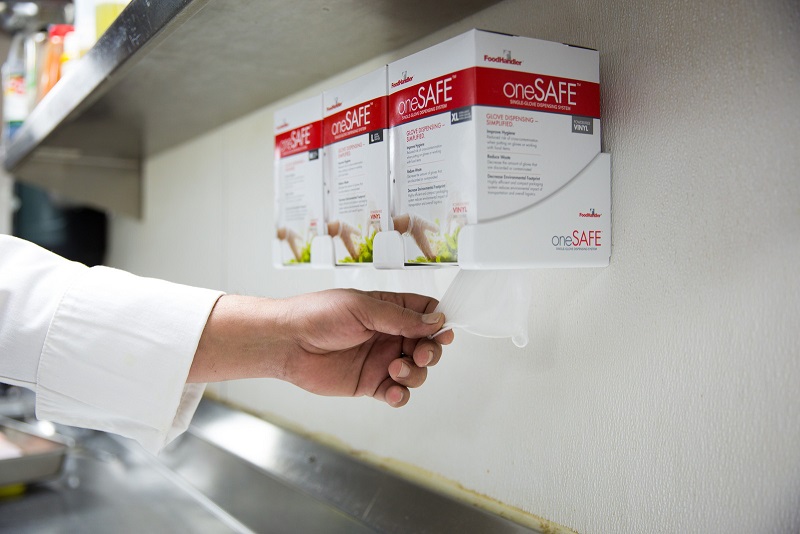Finding the Food Safety Training Program that is Right for You
Whichever you decide, because some jurisdictions have more stringent requirements than the conference for food protection, check with your local health department to make sure they also recognize the exam before you pay for it.
So, who is the Conference for Food Protection? Well, the United States Food and Drug Administration has a memorandum of understanding which recognizes the conference as the organization qualified to develop the standards to promote food safety. The conference is an independent, volunteer-led organization that brings together food industry experts from the government, academics, industry, and consumer organizations to address food safety issues. Several years ago, the conference identified the need to establish a set of uniform national standards to assess food safety certification programs. These standards would provide a basis to assess certification programs and allow jurisdictions (e.g., local health inspectors) to gage the quality of the certification. The conference developed the Standards for Accreditation of Food Protection Manager Certification Programs and maintains and updates these standards, as needed. The conference then contracts the American National Standard Institute to accredit these programs against the standard that the conference has developed. With these standards in mind, the conference, and more specifically, the American National Standard Institute, works with organizations who would like to offer a food safety certification exam to make sure they meet the standards outlined by the conference. Below are organizations who are currently certified to offer the food safety certification exam and some basic information about the program.
| Name of Organization | Certification Exam | Format | Cost | Other Notes |
|---|---|---|---|---|
| 360training.com, Inc. | Learn2Serve Food Protection Manager Certification Exam | Training: Online Exam: Remote proctoring, cost included with both the training and exam package and the exam only option. | Training & Exam: $99.00 Exam only: $55.00 | Students allowed two attempts to pass the exam with no additional cost. Not approved for New York City |
| Above Training / StateFoodSafety.com | Certified Food Protection Manager (CFPM) Exam | Training: online Exam: In-person or online, remote proctoring available | Training & Exam: $78.00[2] + proctor fee (varies, usually around $50) Exam only: $28.00 plus proctor fee (varies, usually around $50) | If you fail the exam, you must repurchase a new exam, however the course remains free. |
| National Registry of Food Safety Professionals | Food Protection Manager Certification Program & International Certified Food Safety Manager | Training: It appears this is designed for in-person training, but self-study options are allowed. There is an affiliate network that provides online training for an additional cost. Exam: It appears the exams are done online, but only at a Pearson VUE testing center. | Training & Exam: $70.95 Self-Study Training Materials: $23.00 Exam only: $47.00 | Examinees may take the exam up to three times without retaking the course. However, examinees MUST retake the training course if failed more than three times. Additional exam vouchers will be necessary for repeated attempts.Of accredited programs, this was the most complicated of the websites to navigate. |
| National Restaurant Association | ServSafe Manager | Training: In-person or online Exam: In-person or online, remote proctoring available. | Training & Exam: In-person costs will vary; online $152.92 plus proctor fee, $179 with testing center access. Convert to online proctoring for an additional $63.00. Exam only: $36.00 | If you fail the exam, you must repurchase a new exam, however the course remains free. |
| Prometric Inc. | Food Protection Manager Certification Program | Training: Designed for in-person but can be completed via self-study. Exam: In-person or online, proctor required. | Training & Exam: Vary by training program Exam only: $28.00 – $48.00 | Exam must be taken at a Prometric testing center. |
| The Always Food Safe Company, LLC | Food Manager Certification | Training: Online Exam: Remote proctoring, cost included with both the training and exam package and the exam only option. | Training & Exam: $78.00 + Remote Proctor Fee of $48.00 Exam only: $28.00 + Remote Proctor Fee of $48.00 | Students allowed two attempts to pass the exam with no additional cost. |
[1] Information is current as of 10/4/2021 [2] Fee is specific to the state and, in some cases, the county. It appears that most are $78.00.
READ MORE POSTS
Food Packaging Safety in a Vacuum
Extending the shelf life of fresh foods has come a long way in the food industry since curing meats with salt and sugar or canning vegetables with heat processing. The food service and consumer markets needed some better visual packages to draw the eye to the freshness factor and the technology of food packaging has filled our dinner plate. Vacuum packaging and modified atmosphere packaging, shortened to “MAP”, are the terms used for the method of food packaging used every time we choose convenience over more complex scratch meal preparation. According to industry statistics, billions of packages of vacuum and MAP-packaged foods flood the marketplace today. In both modified-atmosphere and vacuum packaging, food is packaged in a pouch made of barrier film.
The Eleven Commandments of Food Safety at Your Restaurant
Lists help us remember all kinds of information. Given the list of recent national foodborne outbreaks in the news, keep repeating this list to your food service team. They are kind of like “commandments”. As a professional in a food service facility we should think of the very basic food safety concepts that every crew member should aspire to learn, even though this list may have different priorities based on your menu. The first 3 apply to anyone who serves food, from a bag of popcorn to a full course meal. As chefs or managers, if we can “set the example” by repeating good food safety practices visibly to the crew, it will help them understand how important it is to the success of your facility. Thou shalt:
The Worst Customer Complaint: Foodborne Illness
Food service managers and crew try to follow the rules of food protection. Yet, occasionally a complaint may arise and these calls take priority over all other daily crises. If you have been in the food service industry long enough, you may have gotten one of these. A customer may claim, "I think your food made me ill." These words inflict instant anxiety. If it happens, here are some next steps to think about in advance of such a claim:
How Effective is Your Food Safety Training?
Basic food safety in a restaurant kitchen is not rocket science, but critically important for the crew to take the time to learn about it and for managers to set the example each day. Customers never expect or want to see a manager, chef, or a crew member make a very visible food safety mistake, like not washing hands before food prep and gloving, or touching their face or hair while prepping or handling food. Have we all seen it happen in our restaurant or as a customer elsewhere? Certainly. Are you using some creativity in your current training methods to help your staff “get it” so to speak, and reflect positive behaviors regarding food safety?










